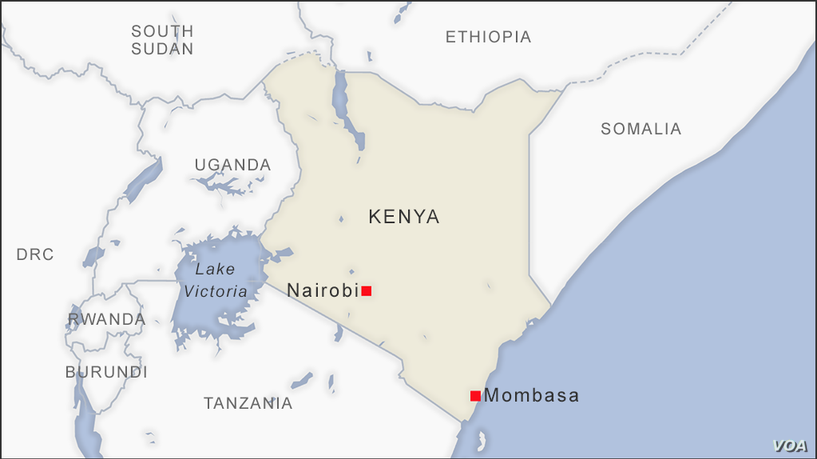Kenya: Explained – Offences and Penalties Under the Persons With Disabilities Act 2025

Nairobi — The Persons with Disabilities Act No. 4 of 2025, which came into force on May 27, spells out a comprehensive list of offences aimed at protecting Kenyans with disabilities from discrimination, abuse, exploitation and degrading treatment.
The law, which strengthens constitutional guarantees under Articles 27, 28, 29 and related provisions of the Bill of Rights, provides for stiff fines and prison terms for individuals, institutions, or professionals who violate the dignity and rights of persons with disabilities.
Below is a breakdown of key offences and corresponding penalties under Part VI — Offences and Penalties:
Any person who wilfully discriminates against a person with disability commits an offence.
- Penalty: Fine up to Sh2 million or two years’ imprisonment, or both.
- Discrimination includes denial of access to:
- Public services or premises
- Education, health, or employment opportunities
- Identification documents
- Dignity and reasonable accommodation
Victims may also pursue civil compensation in addition to criminal sanctions.
2. Abuse, exploitation or violence (Section 63)
Treating a person with disability with violence, confinement, or psychological torture is criminal.
- Penalty: Fine up to Sh2 million or two years’ imprisonment.
- Includes harmful cultural practices, exploitation or inhuman treatment.
3. Concealment of persons with disabilities (Section 64)
Parents, guardians, or caregivers who hide persons with disabilities and deny them opportunities commit an offence.
- Penalty: Fine up to Sh1 million or one-year imprisonment, or both.
4. Harmful practices (Section 65)
Witchcraft, ritual killings, abandonment, or associating disability with omens are severe crimes.
- Penalty: Life imprisonment for perpetrators, accomplices, or those who abet such acts.
- Both national and county governments must take action to eliminate these practices.
5. Denial of food or fluids (Section 66)
Knowingly denying a person with disability food or water amounts to neglect.
- Penalty: Fine up to Sh2 million or one-year imprisonment, or both.
6. Degrading treatment (Section 67)
Mocking or humiliating persons with disabilities — through words, images, or gestures — is punishable.
- Penalty: Fine up to Sh1 million or one-year imprisonment, or both.This clause directly applies to online trolling, memes, and cyber-bullying targeting disability.
7. Begging or soliciting alms (Section 68)
Anyone who encourages or exploits a person with disability to beg commits an offence.
- Penalty: Fine up to Sh2 million or two years’ imprisonment, or both.
8. Negligence by medical professionals (Section 69)
Health workers must not discriminate or fail to obtain informed consent when treating persons with disabilities.
- General offences: Fine up to Sh2 million or one-year imprisonment, or both.
- Forced sterilisation or procedures causing infertility: Fine up to Sh3 million or four years’ imprisonment.
- Negligent guardians or caregivers: Fine up to Sh500,000 or one-year imprisonment, or both.
The Health Cabinet Secretary is required to issue updated medical practice guidelines aligned with the Act.
9. Offensive publications (Section 70)
It is illegal to publish or circulate any material that demeans or discriminates against persons with disabilities.
- Covers: Newspapers, internet, television, radio, and advertising.
- Penalty: Fine up to Sh1 million or six months in jail, or both.
10. False information and fraud (Section 71)
Anyone who lies to gain registration or benefits meant for persons with disabilities commits fraud.
- Penalty: Up to six months in jail, and repayment of any benefits with interest.
11. Torture and cruel treatment (Section 72)
Causing harm or death to a person with disability through torture, ritual killings or cruelty is the gravest offence.
- Penalty: Life imprisonment.
12. Failure to furnish information (Section 73)
Refusing to provide documents or information required under the Act is a punishable administrative offence.
- Penalty: Fine up to Sh50,000 or three months’ imprisonment, or both.
The Act makes disability rights enforceable by law, not optional, shifting responsibility to individuals, caregivers, professionals and institutions to uphold dignity, equality, and access for persons with disabilities.
It also empowers courts to issue any order necessary to stop ongoing violations — a significant leap in Kenya’s human rights enforcement framework.
By Capital FM.



